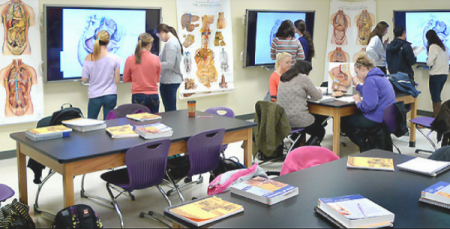Given that research has revealed 60 percent of STEM students don’t graduate (or switch majors), science teaching clearly must change accordingly. One promising approach is “active learning,” which can boost performance by directly engaging classroom students — and this is an area where librarians can have a significant impact.
Active learning can involve:
- Offering students activities to participate in (versus just passive listening)
- Supplementing lectures with problem-solving activities/higher-order thinking tasks
- Requiring students to analyze, synthesize, and evaluate information in-class
- Using video to clearly demonstrate key science concepts and protocols (and for pre-class assignments)
If this sounds like something you want to learn more about, you’re in luck: We recently co-presented a lecture about this very topic at the STEM Librarians South Conference in July 2018. It was titled: “How Librarians Can Positively Impact STEM Students: Active Learning Design & Video Resources.” We’ve included those slides below.
Our co-presenter was Bethany McGowan, a Purdue University medical librarian and assistant professor who has been a vocal champion for active learning in her university's classrooms.
How Video Boosts STEM Success
McGowan argued in a recent blog that librarian have a major part to play in shaping the active learning curriculum. She wrote: “Librarians can play an integral role in the design of active learning curricula, assisting faculty and instructors with appropriate support material and suggesting relevant pre-work and in-class activities.” In particular, streaming educational videos (such as those from JoVE), that are easily embedded into course management systems, are an “ideal component” of pre-work assignments.
In fact, according to a formal study, students using JoVE performed up to 100 percent better in class than colleagues who relied on text alone. “These [JoVE ] videos allow instructors to remain aware of new technologies being utilized in scientific research,” said McGowan, “and help students understand processes that can be reinforced during class.”

